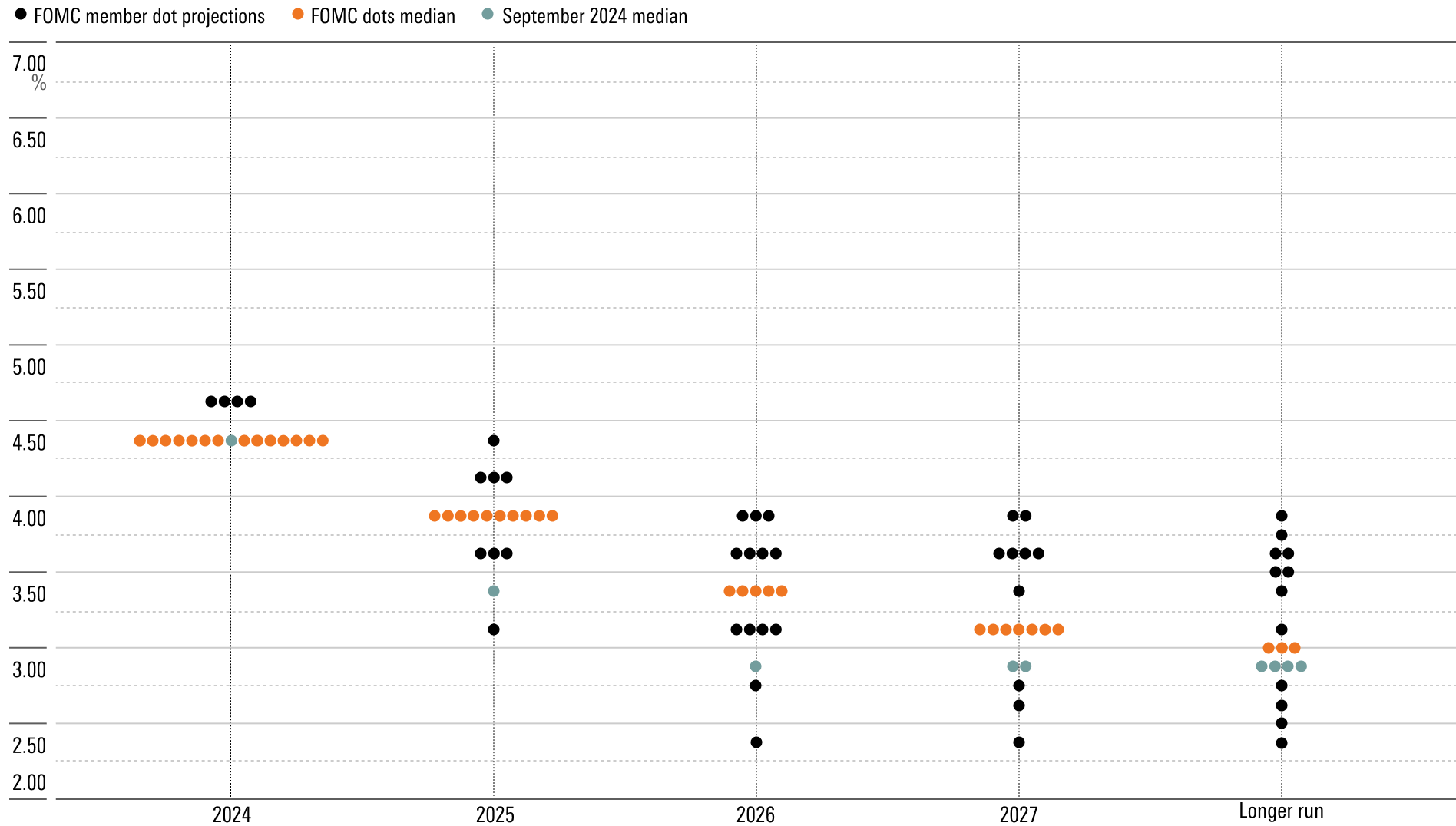
Stocks cratered Wednesday afternoon after the Federal Reserve dramatically pared back its forecasts for interest rate cuts in 2025. The Morningstar US Market Index lost more than 3%, with most of the losses coming after the Fed announced its interest rate decision. Growth stocks in particular saw major losses, with the Morningstar US Large Growth Index falling nearly 4%.
The losses followed months of record-breaking stock market performance, with gains fueled by enthusiasm for artificial intelligence, a strong economy, broadening earnings growth, and expectations for rate cuts. Before Wednesday’s losses, the US Market Index had climbed roughly 28% in 2024.
Why Are Stocks Falling on Fewer Rate Cuts?
“The move in equity markets can be attributed to the Fed’s updated outlook for fewer cuts in 2025,” explains Dominic Pappalardo, chief multi-asset strategist at Morningstar Investment Management. In general, he explains, higher interest rates can erode profit margins. That hurts stock valuations and prices, which is why markets tend to cheer when the central bank eases policy. Higher rates also tend to reduce investors’ willingness to pay for future earnings, which he says makes other less volatile investment options like US Treasuries look more attractive.
Central bankers reduced their benchmark interest rate by 0.25% on Wednesday, bringing the target federal funds rate down to a range of 4.25%-4.50%. That marks a full percentage point of easing since the central bank began cutting rates in September, but investors widely expected the move.
Less expected was the outlook for monetary policy in 2025. Members of the Federal Reserve Open Markets Committee reduced their collective expectations for rate cuts to half of what they anticipated in September. They now expect to cut rates by just 0.50% for the year, which would mean two 0.25% cuts in 2025.
The Dot Plot: Federal-Funds Rate Target Level
FOMC participants' assessments of appropriate monetary policy at the Dec. 18, 2024, meeting.

Source: Federal Reserve. Data as of Dec. 18, 2024.
In a press conference Wednesday afternoon, Fed Chair Jerome Powell said uncertainty surrounding the inflation outlook for 2025 prompted some committee members to dial back their expectations for cuts.
High Valuations Leave Little Room for Error
Pappalardo says the stocks with the highest valuations were most severely impacted in Wednesday’s selloff. That includes technology companies, many of which are in the large-cap growth category. When valuations are elevated, such stocks have less wiggle room to withstand jitters in the broader market or macroeconomic environment. “Today’s extreme market reaction is being driven by today’s extremely rich valuations across risk assets,” Pappalardo explains.
The author or authors do not own shares in any securities mentioned in this article. Find out about Morningstar's editorial policies.
























